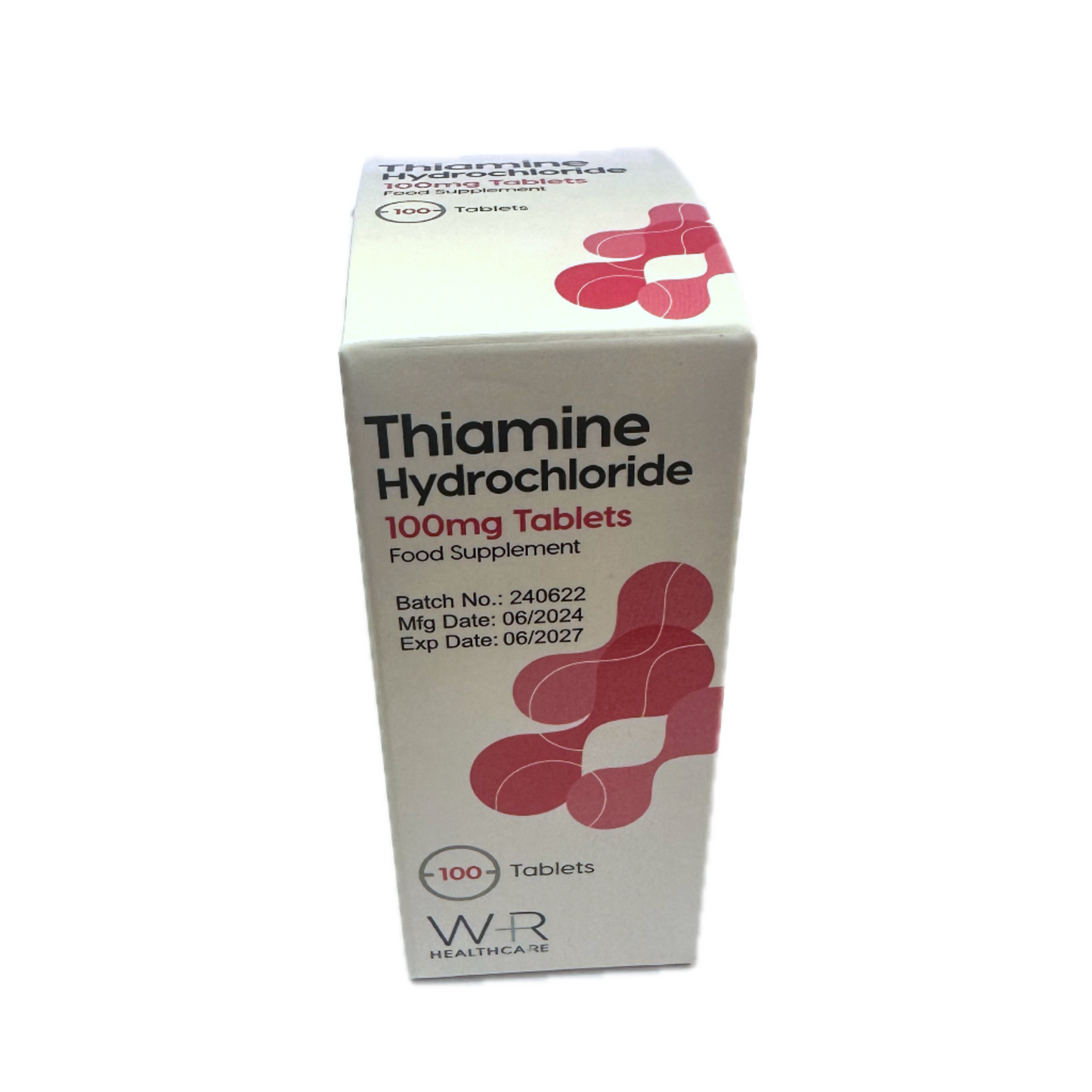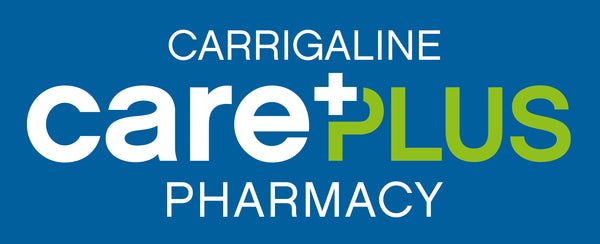1
/
of
4
InternetPharmacy.ie
Thiamine Tablets 100mg (100 Tablets). Best Price in Ireland?
Thiamine Tablets 100mg (100 Tablets). Best Price in Ireland?
Regular price
€6.00 EUR
Regular price
Sale price
€6.00 EUR
Unit price
/
per
Taxes included.
Shipping calculated at checkout.
Couldn't load pickup availability
Thiamin (or thiamine) is one of the water-soluble B vitamins. It is also known as vitamin B1. Thiamine is naturally present in some foods, added to some food products, and available as a dietary supplement. This vitamin plays a critical role in energy metabolism and, therefore, in the growth, development, and function of cells.
Which foods provide thiamine?
Thiamine is found naturally in many foods and is added to some fortified foods. You can get recommended amounts of thiamine by eating a variety of foods, including the following:
- Whole grains and fortified bread, cereal, pasta, and rice
- Meat (especially pork) and fish
- Legumes (such as black beans and soybeans), seeds, and nuts
What kinds of thiamine dietary supplements are available?
Thiamine is found in multivitamin/mineral supplements, in B-complex dietary supplements, and in supplements containing only thiamine. Common forms of thiamine in dietary supplements are thiamine mononitrate and thiamine hydrochloride. Some supplements use a synthetic form of thiamine called benfotiamine.
Am I getting enough thiamine?
Most people get enough thiamine from the foods they eat. Thiamine deficiency is rare in this country. However, certain groups of people are more likely than others to have trouble getting enough thiamine:
- People with alcohol dependence
- Older individuals
- People with HIV/AIDS
- People with diabetes
- People who have had bariatric surgery
What happens if I don’t get enough thiamine?
You can develop thiamine deficiency if you don’t get enough thiamine in the foods you eat or if your body eliminates too much or absorbs too little thiamine.Thiamine deficiency can cause loss of weight and appetite, confusion, memory loss, muscle weakness, and heart problems. Severe thiamine deficiency leads to a disease called beriberi with the added symptoms of tingling and numbness in the feet and hands, loss of muscle, and poor reflexes. Beriberi is not common in developed countries.A more common example of thiamine deficiency is Wernicke-Korsakoff syndrome, which mostly affects people with alcoholism. It causes tingling and numbness in the hands and feet, severe memory loss, disorientation, and confusion.
What are some effects of thiamine on health?
Scientists are studying thiamine to better understand how it affects health. Here are some examples of what this research has shown.
Diabetes
People with diabetes often have low levels of thiamine in their blood. Scientists are studying whether thiamine supplements can improve blood sugar levels and glucose tolerance in people with type 2 diabetes. They are also studying whether benfotiamine (a synthetic form of thiamine) supplements can help with nerve damage caused by diabetes.Heart failure
Many people with heart failure have low levels of thiamine. Scientists are studying whether thiamine supplements might help people with heart failure.Alzheimer’s disease
Scientists are studying the possibility that thiamine deficiency could affect the dementia of Alzheimer’s disease. Whether thiamine supplements may help mental function in people with Alzheimer’s disease needs further study.Can thiamine be harmful?
Thiamine has not been shown to cause any harm.
Does thiamine interact with medications or other dietary supplements?
Yes. Some medicines can lower thiamine levels in the body. Here are a couple examples:
- Furosemide (Lasix), which is used to treat high blood pressure and swelling caused by excess fluid in the body
- Fluorouracil (5-fluorouracil and Adrucil), which is used in chemotherapy treatments for some types of cancer
Share








